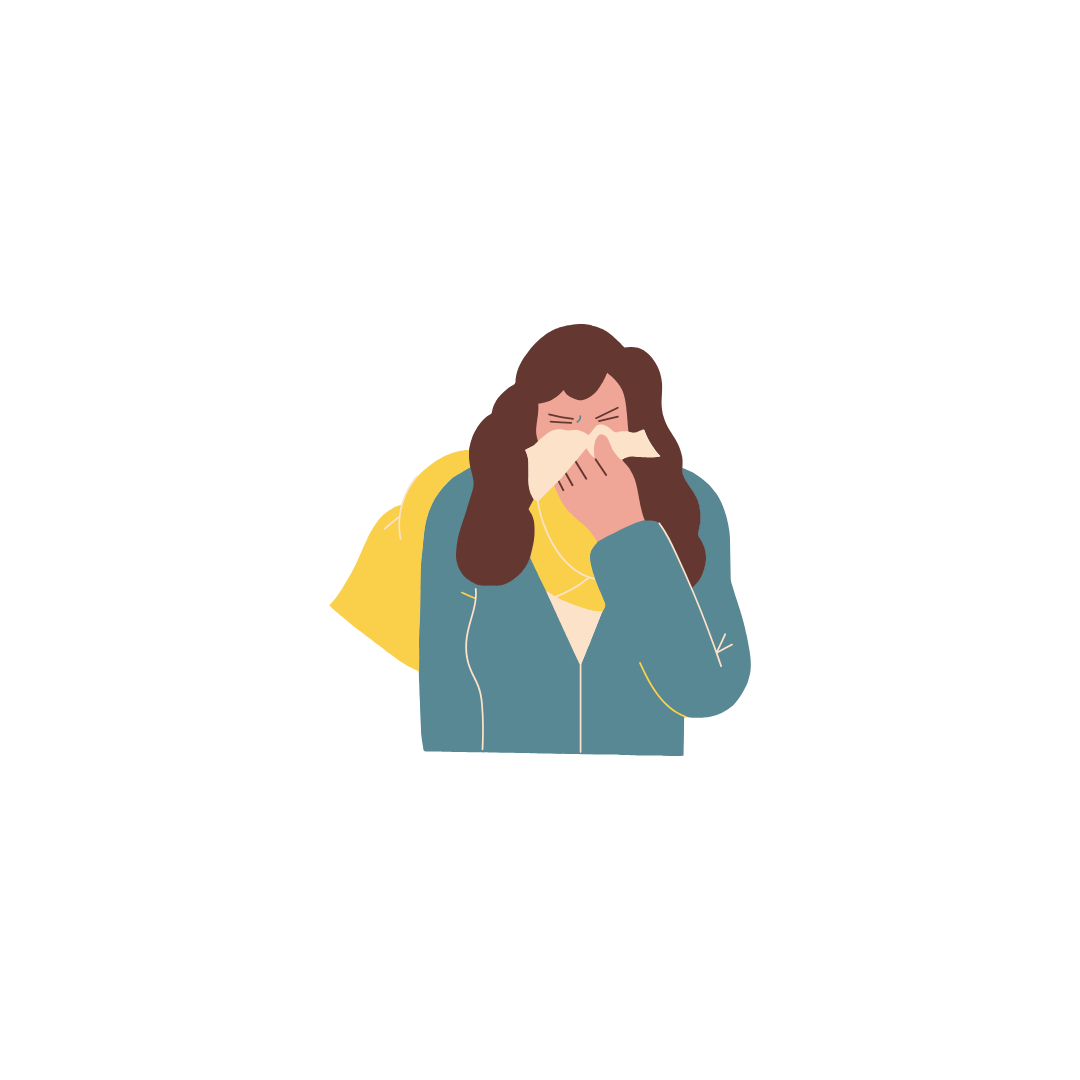Contamination OCD
When most people think of Obsessive-Compulsive Disorder (OCD), they might picture someone who can't stand a messy room or feels the need to constantly clean. But OCD is much more complex, and one of its most common forms is Contamination OCD—a type of OCD where people experience intense fears about being contaminated by germs, dirt, or even something as abstract as bad thoughts or energies. In this blog, we'll talk about what Contamination OCD is, how it affects people, and what can be done to manage it.
What is Contamination OCD?
Contamination OCD is a specific type of OCD where a person’s main fear revolves around germs, dirt, and other “contaminants.” But it’s not just about wanting things to be clean or tidy. For those with this condition, contamination is a serious, persistent fear that can lead to excessive cleaning or avoiding places and people they think might expose them to germs or harmful substances.
People with Contamination OCD often experience obsessions—intrusive thoughts that cause intense anxiety—such as worries about germs spreading through touching a doorknob or becoming sick from shaking hands. These thoughts are so distressing that they lead to compulsions, such as washing hands over and over again, cleaning surfaces excessively, or avoiding certain places altogether (International OCD Foundation, n.d.).
How Does It Affect People?
Contamination OCD can seriously interfere with daily life. The compulsions take up a lot of time and energy. Someone might spend hours cleaning or avoiding certain things, and it’s not because they want everything spotless; it’s because their mind tells them that if they don’t, something terrible will happen.
For instance, someone with Contamination OCD might:
Wash their hands dozens of times after touching a public door handle, even though they know it’s unlikely to make them sick.
Avoid touching anything they think could be contaminated, like using a public restroom or sitting on public transportation.
Clean their house excessively, using harsh chemicals or scrubbing every surface for hours to get rid of germs.
This can lead to stress, frustration, and even isolation because the compulsions might prevent them from living a normal life.
Why Does Contamination OCD Happen?
Like all OCD, Contamination OCD is a mix of genetic, environmental, and neurological factors. The brain of someone with OCD may interpret ordinary situations as much more dangerous than they really are, and these fears are what lead to obsessive thinking and compulsive behaviors. Stressful life events, trauma, or significant changes can trigger or worsen OCD symptoms, but there isn’t a one-size-fits-all reason why someone develops it.
In essence, OCD tricks the brain into thinking that something terrible will happen unless certain behaviors (like excessive washing or avoiding things) are done. While the relief from performing these behaviors is temporary, it only makes the obsessions stronger in the long run (National Institute of Mental Health, 2020).
Symptoms of Contamination OCD
There are many different ways Contamination OCD can show up. Some common signs are:
Constant Handwashing or Cleaning: People with Contamination OCD might wash their hands repeatedly, even after touching things that are not likely to cause harm.
Avoidance: They might avoid certain situations (e.g., public places, shaking hands, touching certain objects) that they associate with contamination.
Mental Compulsions: Not all compulsions are visible. Some people with OCD might engage in mental rituals, like repeating certain thoughts or phrases in their head to "prevent" contamination.
While these behaviors might seem like regular habits or quirks, for someone with OCD, they’re driven by overwhelming anxiety and the need to prevent harm.
Treatment for Contamination OCD
The good news is that Contamination OCD can be treated. If you or someone you know is dealing with it, there are options available to help manage the symptoms. Here are the most common treatments:
Cognitive Behavioral Therapy (CBT): This form of therapy is one of the most effective treatments for OCD. It helps individuals identify and challenge their irrational fears and develop healthier coping strategies (National Institute of Mental Health, 2020). Specifically, Exposure and Response Prevention (ERP) is a type of CBT that helps people face their fears in a controlled way. For example, someone might be gradually exposed to touching a "contaminated" object and then resist the urge to wash their hands. Over time, this helps reduce the anxiety associated with contamination.
Medications: Certain medications, like Selective Serotonin Reuptake Inhibitors (SSRIs), can help reduce the severity of OCD symptoms. These drugs work by adjusting the levels of serotonin, a neurotransmitter that affects mood and anxiety.
Support Groups: Talking to others who understand what you're going through can be really helpful. There are many online support groups or local ones where people with OCD can share their experiences and coping strategies.
Mindfulness and Relaxation: Techniques like deep breathing, meditation, and mindfulness can help reduce the anxiety that triggers OCD behaviors. These methods allow individuals to stay present in the moment and resist compulsive actions.
How to Help a Loved One with Contamination OCD
If someone you love is struggling with Contamination OCD, it can be hard to know how to help. Here are some tips:
Be Understanding: OCD is not a behavior that can be "snapped out of." Be patient and encourage your loved one to get professional help.
Don’t Enable Compulsions: It can be tempting to help them avoid situations that trigger their OCD, but this can actually make the problem worse. Instead, encourage them to confront their fears with the help of a therapist.
Offer Support: Let them know that you’re there for them. Listening and offering emotional support can make a big difference.
Contamination OCD isn’t just about being a germaphobe or obsessively cleaning—it’s a real mental health condition that causes distress and disruption in daily life. While it can feel overwhelming, the good news is that Contamination OCD is treatable with the right therapy, medication, and support. If you or someone you know is struggling, it’s important to reach out to a mental health professional to explore treatment options. With the right help, it’s possible to manage the symptoms and regain control of life.
International OCD Foundation. (n.d.). Contamination OCD. International OCD Foundation. Retrieved March 31, 2025, from https://iocdf.org/about-ocd/
National Institute of Mental Health. (2020). Obsessive-Compulsive Disorder. National Institute of Mental Health. Retrieved March 31, 2025, from https://www.nimh.nih.gov/health/topics/obsessive-compulsive-disorder-ocd


